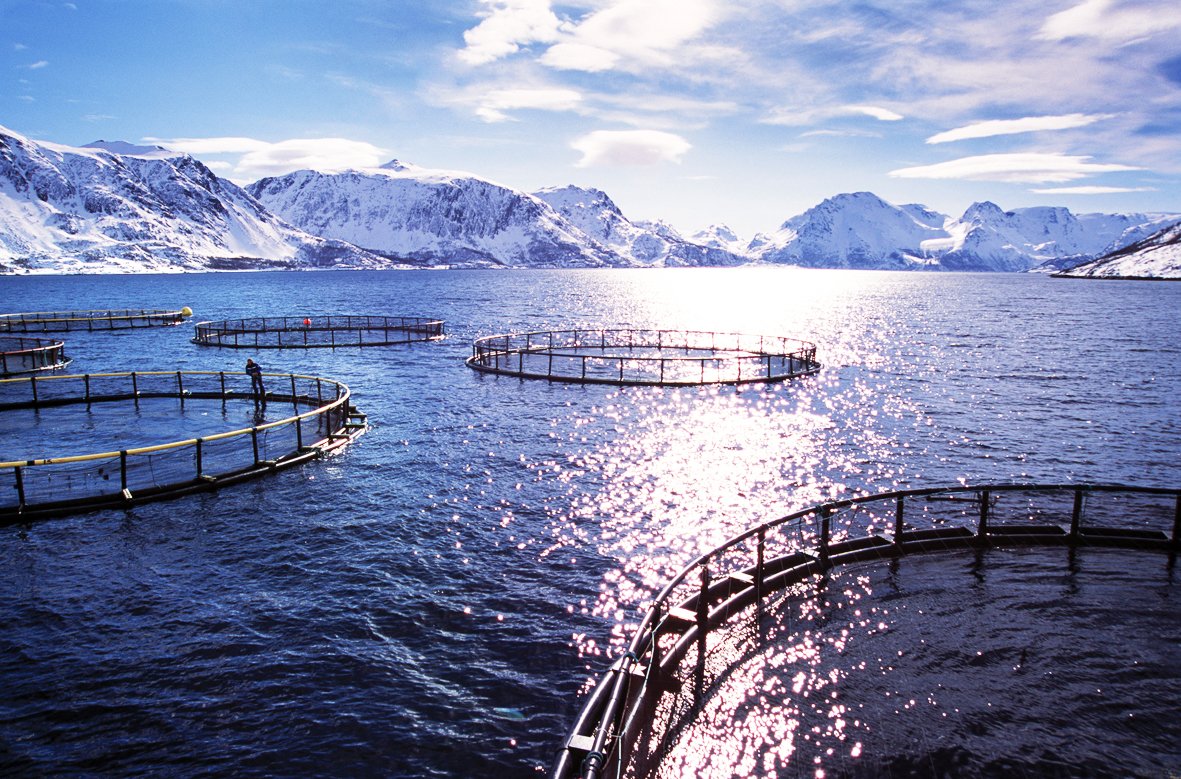
Reputation and profitability are strengthened when the aquaculture industry works continuously to minimise its impact on the environment. Therefore, to be competitive it is only natural and essential that the suppliers to the aquaculture industry also follow suit.
Modern technology, new production methods, changed attitudes and expertise, changing market conditions, increasing political pressure and focus on reputation are all important reasons for a united industry to constantly seek new ways of reducing the environmental challenges associated with fish farming.
The fish farmers reduce sea lice infestation, prevent farmed fish from escaping, install hybrid solutions and improve feeding efficiency. The suppliers who work just as hard will strengthen their resilience through the green transition. If we are to succeed, we must work globally to cut emissions, locally to reduce the impact on nature and continuously to improve fish welfare.
In the bigger picture, there are five axes along which we as suppliers can contribute:
• Reduce our energy consumption
• Reduce transport emissions
• Reduce discharges to the sea
• Reduce raw material consumption
• Proper waste management
AKVA group, and our wholly-owned subsidiary Egersund Net, are already at the forefront of this work and are working on a long-term goal to reduce our carbon and environmental footprint. For our Norwegian customers, this is important for two reasons. We can help make it easier for our customers to manage their environmental challenges, and we must satisfy the requirements that our customers set their suppliers regarding sustainable operations.
Waste management
In 2020, our eight service stations along the coast of Norway generated 403 tonnes of waste. Due to its copper content, this is classified as hazardous waste. Last year, the bulky waste, which is sent to Sweden, contributed to 603,000 kWh of energy recovery for the benefit of the entire municipality of Ørebro.
The fine waste is sent to Germany and in 2020, 45 tonnes of pure copper were recovered.
From the autumn of 2020, we established a project to reduce the weight of the waste from three of our eight stations by 40% within 2021. When the goods to be transported weigh less, less CO2 is emitted, and the cost of the actual waste management is significantly reduced.
Reduce energy consumption
Drying the nets consumes a lot of energy. Although this is clean energy from hydroelectric power and the surplus heat from the drying process is used to heat other locations, the greatest environmental benefit will be achieved by reducing our energy consumption.
At our new service station in Kvalsund, we are now using heat pump technology that enables us to halve the temperature during the drying process without impairing the result or increasing the drying time. We hope the experience from this project means that we can modify the other service stations to incorporate this technology and the aim is to reduce energy consumption by 70% once this has been completed.
Recycling net pens
A discarded net pen is an environmental problem. Combining creativity and modern recycling technology, a discarded net pen becomes an attractive resource. We cooperate with Nofir AS to collect, transport, control, fractionate and recycle used net pens.
Recycling discarded equipment is important and necessary to stop further littering of the sea. For every kilogram we recycle, we save the environment from an average of 1.6 kg of oil and 3.6 kg of environmental equivalents compared with the use of new materials.
In 2020, we collected 3,762 tonnes of used nets. This produced 900 tonnes of nylon netting that is regenerated and used in new products such as clothes, carpets, furniture, and shopping baskets. At the headquarters of the Egersund Group, there are rugs made from regenerated nylon from net pens.
Reduce discharges to water
We use large quantities of saltwater when cleaning net pens for our customers. Given the copper content of the netting, the wastewater is defined as hazardous waste. The Pollution Control Regulations set limits for copper emissions to only 2 kg a year per service station.
All our service stations in Norway use advanced, German cleaning technology and the wastewater undergoes ozone treatment as the final measure before it is discharged back into the sea. This process kills all bacteria and viruses.
In 2020, each service station discharged an average of 0.33 kg of copper, and none discharged more than one kilogram. In other words, we are far below the authorities’ maximum limit of two kilograms per service station.
Continuous process
AKVA group, and our wholly-owned subsidiary Egersund Net, work purposefully to reduce the negative environmental impact of our operations and our employees’ knowledge, attitudes and actions must reflect this.
The pace of the green transition has accelerated in our industry, which is a positive development. Working on sustainability is a continuous process, where knowledge, technology, and awareness drive development forward and enable us to also contribute to our customers’ processes toward more sustainable production. We have achieved a lot, but we must do more.
If you would like to know more about AKVA group’s commitment to sustainability, contact our Director of Communication and Sustainability, Ståle Økland.
{{cta('043f87ee-42ff-4240-9c27-f7142090ecb0')}}